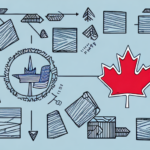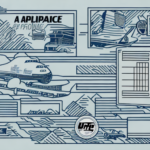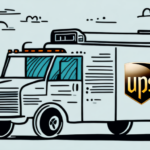How to Handle UPS Not Previously Billed 3 Day Select Residential Third Party Charges
UPS is a leading shipping company offering a variety of services tailored to businesses and individuals alike. One of their popular offerings is the 3 Day Select Residential Shipping, favored for its balance of speed and cost-effectiveness. However, managing the billing for this service can present challenges, particularly when third-party charges are not accurately reflected on UPS invoices. This guide provides a comprehensive approach to effectively address and resolve these billing issues.
Understanding UPS 3 Day Select Residential Shipping
UPS 3 Day Select Residential Shipping is a guaranteed delivery service that ensures your packages reach their destination within three business days across the United States. This service is ideal for shipments that are time-sensitive but not urgent enough to require overnight delivery. It includes features such as tracking capabilities, allowing both senders and recipients to monitor the package's progress.
It's important to note that UPS 3 Day Select is exclusively available for domestic shipments within the U.S. This service does not include weekend deliveries, so planning ahead is crucial if a specific delivery date is required. For faster options, UPS offers services like Next Day Air and 2nd Day Air, which come at a higher cost but provide expedited delivery times.
Why Third Party Charges May Not Be Billed on UPS Invoices
Third-party charges might not appear on UPS invoices due to the complexity involved in the shipping process. When utilizing UPS 3 Day Select Residential Shipping, multiple third parties—such as brokers, transportation providers, and other service vendors—may be involved. Tracking these additional charges can be challenging, and UPS's automated billing systems may occasionally overlook them.
Another contributing factor is the communication gap between the shipper and third-party service providers. If essential billing information isn't relayed to UPS by the shipper or the third party, UPS may fail to include these charges on the final invoice. Effective and clear communication between all parties is essential to ensure that all costs are accurately captured and billed.
Common Reasons for UPS Not Billing Third Party Charges
- Incomplete Information: Third parties may not provide all necessary billing details to UPS.
- Billing System Errors: UPS's billing systems might miss charges due to improper recording or technical glitches.
- Human Error: Manual entry mistakes can lead to omissions of third-party charges.
It's crucial to regularly verify that all third-party charges are accounted for to prevent the recipient from bearing unexpected costs. Confirming billing accuracy with both UPS and the third-party providers can mitigate these issues.
The Importance of Handling Unbilled Charges with UPS
Addressing unbilled charges is vital for maintaining accurate financial records and managing business expenses effectively. Unresolved charges can accumulate, leading to significant unexpected costs that strain financial resources, particularly for small businesses operating with tight budgets.
Additionally, resolving these charges helps in identifying discrepancies or errors in shipping invoices, ensuring that you are only billed for services you have actually utilized. This not only saves money but also enhances the efficiency and reliability of your shipping operations.
Steps to Take When You Discover Unbilled UPS Third Party Charges
- Identify the Issue: Review your shipping invoices and compare them with your internal records to pinpoint discrepancies.
- Contact UPS: Reach out to UPS customer service with detailed information about the unbilled charges.
- Communicate with Third Parties: Ensure that all third-party providers have submitted the necessary billing information to UPS.
- Monitor Invoices: Implement a system for regularly reviewing and reconciling shipping invoices to prevent future occurrences.
By following these steps, you can systematically address and resolve unbilled charges, ensuring the accuracy of your financial transactions related to shipping.
How to Contact UPS to Resolve Unbilled Charges
To resolve unbilled charges, you can contact UPS through several channels:
- Customer Service Phone Line: Call UPS customer service to speak directly with a representative. Have your shipping invoices and relevant documentation ready.
- UPS Website: Visit the UPS Contact Us page to find email and online chat options.
- Email: Send a detailed email outlining the issue, including invoice copies and any correspondence with third parties.
Providing comprehensive information will facilitate a quicker resolution process. UPS typically investigates the matter and collaborates with you to rectify any billing discrepancies.
Best Practices for Tracking Your UPS Shipping Invoices and Charges
To prevent unbilled charges, implement the following best practices:
- Maintain Detailed Records: Keep comprehensive records of all shipping invoices and related documents.
- Regular Reviews: Periodically review your invoices to ensure all charges are correctly applied.
- Utilize UPS Online Tools: Leverage UPS's online platforms to track shipments and monitor invoicing in real-time.
- Set Up Alerts: Configure notifications for any changes or updates to your invoices.
- Internal Communication: Ensure that all relevant departments within your organization are aware of the tracking and invoicing procedures.
These practices help in early detection of billing issues and ensure that all shipping costs are accurately captured and managed.
Tips for Avoiding Future UPS Billing Issues with Third Party Charges
To minimize future billing issues with UPS and third-party charges, consider the following strategies:
- Partner with Trusted Providers: Work with reputable third-party vendors who reliably communicate billing information.
- Provide Complete Information: Ensure that all necessary shipping and billing details are accurately provided to UPS from the outset.
- Regular Monitoring: Continuously monitor your shipping invoices for any irregularities.
- Clear Contracts: Draft transparent agreements with third-party providers that clearly outline all potential charges.
- Rate Negotiations: Negotiate favorable rates and fees with third-party vendors to secure the best deals.
- Prompt Dispute Resolution: Address any billing disputes immediately to prevent recurring issues.
Implementing these tips can significantly reduce the likelihood of encountering unbilled third-party charges, ensuring smoother financial operations.
How to Review and Analyze Your UPS Invoices for Accuracy
Ensuring the accuracy of your UPS invoices involves a thorough review process:
- Verify All Charges: Cross-check each charge on the invoice with your shipping records to ensure accuracy.
- Match Billing Details: Confirm that billing information, such as addresses and account numbers, matches your records.
- Identify Discrepancies: Look for any inconsistencies or unexpected charges that may indicate errors.
Additionally, analyze trends in your shipping costs to identify potential areas for savings. Monitoring these trends can help you make informed decisions about consolidating shipments or negotiating better rates with UPS. Keep track of any credits or refunds owed to you and promptly address any discrepancies with UPS to maintain financial accuracy.
The Impact of Unbilled Shipping Charges on Your Business Finances
Unbilled shipping charges can have a detrimental effect on your business finances by introducing unexpected expenses that disrupt budgeting and cash flow. These unaccounted costs can accumulate, leading to significant financial strain, especially for small businesses with limited resources.
To mitigate these impacts, establish a robust system for tracking and reconciling shipping expenses. Regularly compare your shipping invoices against your internal records to identify and address any discrepancies promptly. Additionally, negotiating favorable shipping rates with UPS can help reduce the likelihood of unexpected charges, thereby safeguarding your financial health.
Understanding the Different Types of UPS Shipping Costs and Fees
UPS shipping involves various costs and fees that businesses need to understand to manage their shipping budgets effectively:
- Fuel Surcharges: Additional fees that cover the fluctuating costs of fuel.
- Delivery Area Surcharges: Extra charges for deliveries to remote or hard-to-reach locations.
- Residential Delivery Fees: Higher fees associated with delivering to residential addresses compared to commercial ones.
- Insurance Charges: Costs for insuring packages against loss or damage.
- Handling Fees: Fees for special handling requirements, such as fragile or oversized items.
Understanding these fees enables businesses to better predict shipping costs and identify areas where savings can be achieved.
How to Negotiate Better Shipping Rates with UPS
Negotiating better shipping rates with UPS can lead to substantial savings. Here are strategies to consider:
- Consolidate Shipping Volumes: Combining shipments can increase your shipping volume, giving you leverage for higher discounts.
- Partner with a Third-Party Logistics Provider (3PL): A 3PL can negotiate on your behalf and often secure better rates due to their established relationships and volume discounts.
- Establish Long-Term Contracts: Committing to long-term shipping agreements can provide stability and potentially better rates.
- Analyze Shipping Patterns: Understanding your shipping needs and patterns can help you identify opportunities for cost savings.
Implementing these strategies can enhance your negotiating position and lead to more favorable shipping rates with UPS.
Ways to Reduce Your Shipping Costs with UPS without Sacrificing Quality
Reducing shipping costs while maintaining quality is achievable through the following methods:
- Optimize Packaging: Use appropriately sized packaging to minimize weight and dimensional fees.
- Utilize UPS Online Tools: Streamline your shipping process with UPS's online platforms, which can offer cost-saving features like rate calculators and shipping consolidations.
- Negotiate Volume Discounts: As your shipping volume increases, negotiate for better rates based on your higher usage.
- Implement Efficient Shipping Practices: Group shipments, plan routes effectively, and avoid expedited shipping unless necessary to reduce costs.
These approaches allow businesses to manage shipping expenses efficiently without compromising on the quality and reliability of their shipments.
The Benefits of Outsourcing Your Shipping Needs to a Third-Party Logistics (3PL) Provider
Outsourcing shipping to a Third-Party Logistics (3PL) provider offers several advantages:
- Cost Reduction: 3PLs often have access to discounted shipping rates and can pass these savings on to your business.
- Enhanced Efficiency: By managing shipping logistics, 3PLs streamline operations, allowing you to focus on core business activities.
- Expertise: 3PLs possess specialized knowledge and experience in logistics, providing valuable insights and solutions for your shipping needs.
- Scalability: As your business grows, 3PLs can adjust their services to accommodate increased shipping volumes without compromising service quality.
Partnering with a 3PL can lead to improved shipping performance, reduced costs, and greater operational flexibility.
Conclusion
Effectively managing unbilled third-party charges in UPS 3 Day Select Residential Shipping is essential for maintaining accurate financial records and controlling shipping expenses. By understanding how UPS 3 Day Select works, recognizing the reasons behind unbilled charges, and implementing best practices for tracking and analyzing your invoices, you can mitigate unexpected costs and enhance your shipping efficiency. Should you encounter unbilled charges, promptly contacting UPS and collaborating with all involved parties will help ensure that your billing remains accurate and transparent, supporting the financial health and operational success of your business.






















